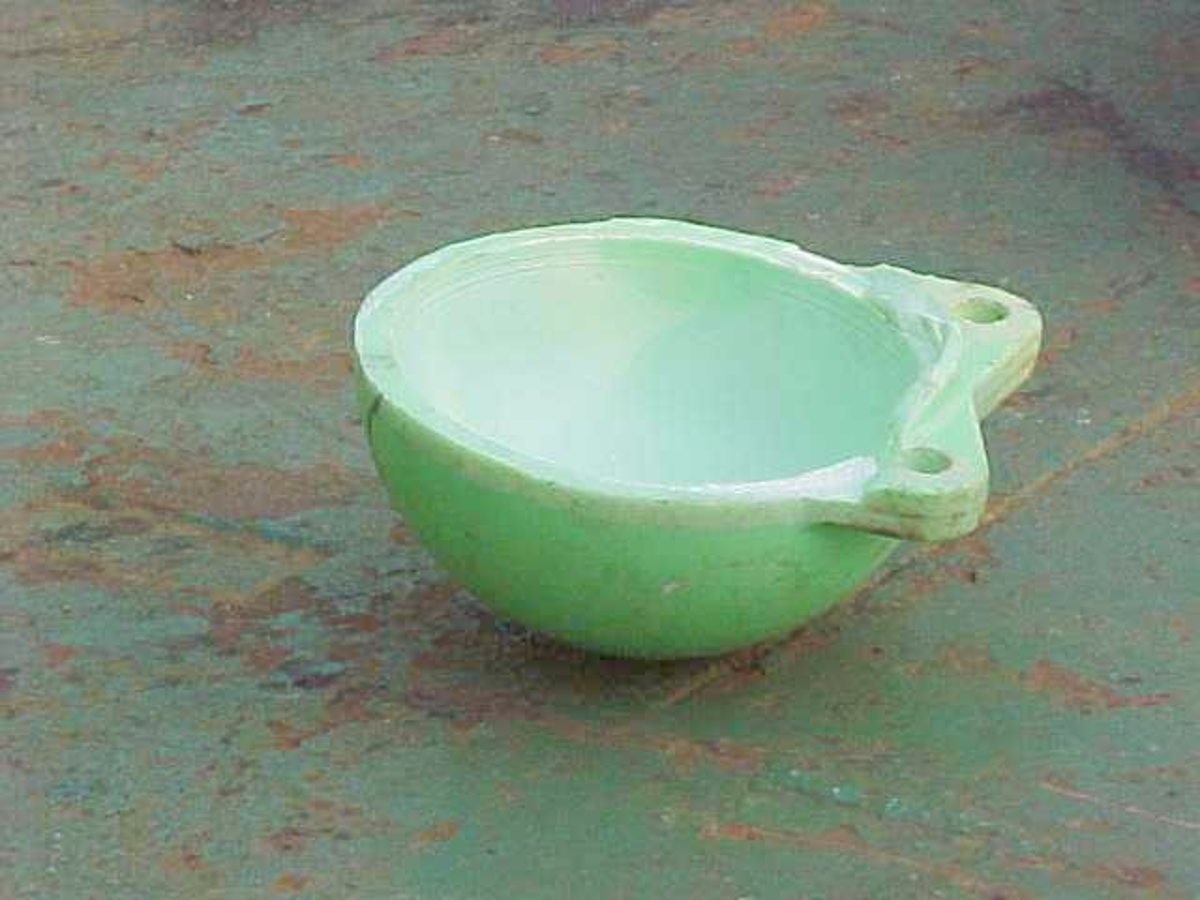Failure of plastic floatation buoy
- Safety Flash
- Published on 2 August 2001
- Generated on 5 March 2026
- IMCA SF 09/01
- 1 minute read
Jump to:
We have received the following information concerning a failure of a plastic floatation buoy.
What happened?
During deepwater operations on one of our member’s vessels, a sling had been recovered to surface and riggers were in the process of removing a cluster of plastic flotation buoys. These buoys were rated for 150 bar external pressure and were hollow air filled types.
Without warning or any obvious signs of damage, one of the buoys exploded, resulting in two halves of the float flying apart with some force (see picture below). Fortunately no-one was injured, however this serious near miss serves to remind us, that such events are not unknown and for this reason, IMCA produced IMCA Guidance Note IMCA R001 – Plastic spherical air-filled fishing buoys concerning failures of this type of buoy giving recommendations on their use.
Whilst the floats being used were suitably pressure rated, the company concerned cannot be sure that either through manufacturing defects or due to rough handling that fissures in the seam of the floats allowed the internal void to be pressurised.
A number of IMCA member companies have a policy of not using plastic buoys.

IMCA Safety Flashes summarise key safety matters and incidents, allowing lessons to be more easily learnt for the benefit of the entire offshore industry.
The effectiveness of the IMCA Safety Flash system depends on the industry sharing information and so avoiding repeat incidents. Incidents are classified according to IOGP's Life Saving Rules.
All information is anonymised or sanitised, as appropriate, and warnings for graphic content included where possible.
IMCA makes every effort to ensure both the accuracy and reliability of the information shared, but is not be liable for any guidance and/or recommendation and/or statement herein contained.
The information contained in this document does not fulfil or replace any individual's or Member's legal, regulatory or other duties or obligations in respect of their operations. Individuals and Members remain solely responsible for the safe, lawful and proper conduct of their operations.
Share your safety incidents with IMCA online. Sign-up to receive Safety Flashes straight to your email.